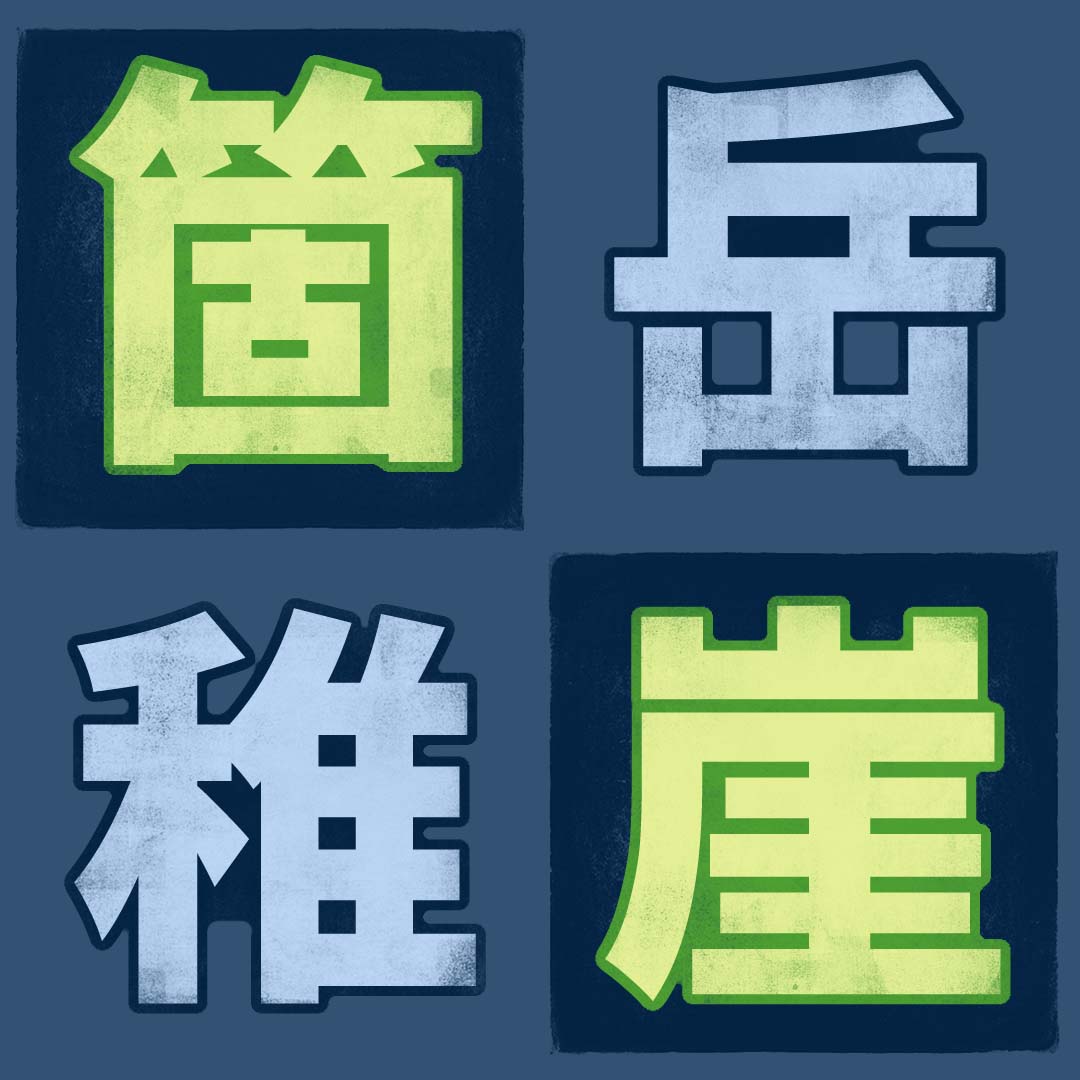部
Components
稚 means 'immature'
Common readings
On
チ
Additional readings
On ジ
Kun いとけない おさない おくて おでる
Name まさ わか わく わっか
Notes
A Joy o' Kanji essay is available for 稚 - click the badge to download
The essay is also included in the following Thematic Bundles
75
Heian Piety and Problems
箇 岳 稚 崖

Components
Mastery
Flashcards
Most useful words by reading
In the most useful 10,000 words in Japanese, 稚 is used 3 times, read 1 way.
Across all words in Japanese, 稚 is used 13 times, read 1 way (with 1 variation).
Showing:
チ
: 12 words
FIND ALL
わか:
1 word.
FIND ALL
An additional 7 less common words include 稚 but the readings have not yet been categorized.
More information
Additional data
Cascading kanji view
Problem with this kanji? Question or comment? Please CONTACT US.
